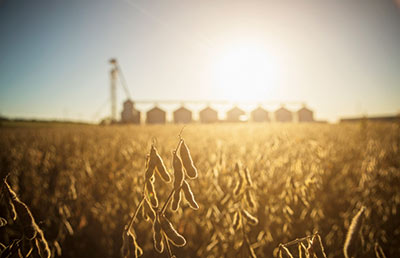Is a REAP Grant Right for You?

Thanks to Denise Cappis, Assistant Controller in our Bloomington, Illinois office, for the content of this post. Denise has written grants for clients to obtain funds for various projects. If you are looking at a solar project…keep reading…this is for you!
The USDA Rural Energy for America Program (REAP) is a program that provides guaranteed loan financing and grant funding to agricultural producers and rural small businesses for renewable energy systems or to make energy efficiency improvements. The program is accepting applications for quarterly competitions, with the application period open from December 31, 2023, to September 30, 2024.
The program has been provided over $2 billion for renewable energy systems and energy efficiency improvement grants for agricultural producers and rural small business owners through 2031. The maximum grant size was increased from $250,000 to $500,000 for energy efficiency projects and from $500,000 to $1 million for renewable energy systems. The federal share was raised to 50% for all energy efficiency projects, all zero-emission renewable energy projects, and all projects in designated energy communities and projects submitted by eligible tribal entities. The creation of an Underutilized Technology Fund with an initial infusion of $144.5 million for renewable energy technologies which made up less than 20% of the project pool two years previous to the application year.
The program is undergoing numerous changes with the infusion of funds from the Inflation Reduction Act (IRA). Understanding these will be key to the completion of a successful application.
Eligible applicants for the USDA Rural Energy for America Program (REAP) include agricultural producers and rural small businesses. To qualify for the program, agricultural producers must derive at least 50% of their gross income from agricultural operations, while small businesses must be located in eligible rural areas and meet the Small Business Administration size standards. Projects must be located in rural areas with populations of 50,000 residents or less. You can check eligible rural areas here:
https://eligibility.sc.egov.usda.gov/eligibility/welcomeAction.do?pageAction=ONERD
Agricultural producers may submit projects to be located in non-rural areas as long as the project is associated with an on-site production operation.
How can funds be used?
Funds can be used for renewable energy systems such as:
- Biomass (for example: biodiesel and ethanol, anaerobic digesters, and solid fuels)
- Geothermal for electric generation or direct use
- Hydropower below 30 megawatts
- Hydrogen
- Small and large wind generation
- Small and large solar generation
- Ocean (tidal, current, thermal) generation
Funds also can be used to buy, build, and install energy efficiency improvements such as:
- High-efficiency heating, ventilation, and air conditioning systems (HVAC)
- Insulation
- Lighting
- Cooling or refrigeration units
- Doors and windows
- Electric, solar, or gravity pumps for sprinkler pivots
- Switching from a diesel to an electric irrigation motor
- Replacement of energy-inefficient equipment Agricultural producers can also use guaranteed loan funds to install energy efficient equipment and systems for agricultural production or processing.
The USDA Rural Energy for America Program (REAP) is a competitive program in which all projects are scored against one another in each state. The scoring rubric is detailed in the Federal Register Notice. The new scoring rubric is summarized as follows:
- Energy generated/saved/replaced
- Previous recipient?
- Length of payback period
- Commitment of matching funds
- Environmental benefits
- Located in a Disadvantaged Community or a Distressed Community
- State Director/Administrator
Applications submitted for a certain category will be ranked and awarded based only on those applications included in that category.
So how do you get started? Applications for this program are accepted year-round at your local office. (https://www.rd.usda.gov/contact-us/state-offices) Get help if you need it too. Obtaining a competitive grant can often come down to who has the best set of facts and can weave them into the most compellign story. The value of the grant is likely worth the professional fees paid to assist in the application process.
Kelly Jackson Hardy is a certified public accountant and business advisor specializing in income taxation, accounting services, and succession planning for farmers, privately-held elevators and supply dealers, and cooperatives. Kelly is a principal with CliftonLarsonAllen in Princeton, Illinois, as well as a regular speaker at tax and estate planning seminars. Kelly was raised on a hog, row crop and cattle farm in central Illinois and has been involved in the ag industry her entire life. Kelly, her husband, and two sons are active in 4-H and operate a small feeder calf operation and pumpkin business.

Comments are closed.